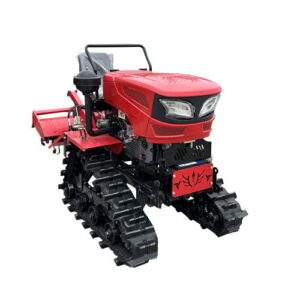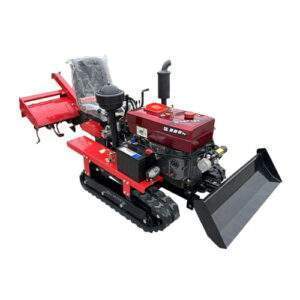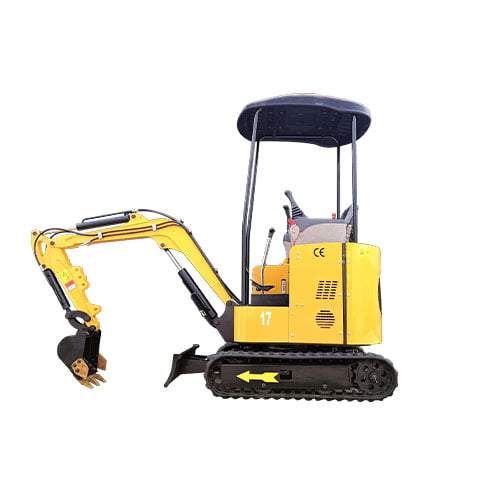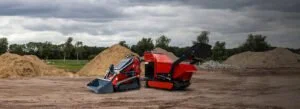Mini Tractor for Farming: A Small Machine, Big Impact
Welcome to My Blog!
Before we dive into the content, I’d love for you to join me on my social media platforms where I share more insights, engage with the community, and post updates. Here’s how you can connect with me:
Facebook:https://www.facebook.com/profile.php?id=61557298070472
Now, let’s get started on our journey together. I hope you find the content here insightful, engaging, and valuable.
Introduction

In the ever-evolving landscape of agriculture, innovation continues to shape the way we cultivate our land. One such innovation is the mini tractor for farming, a compact powerhouse that has revolutionized farming practices, particularly for small-scale farmers and hobbyists. These diminutive machines, while small in stature, possess immense capabilities, offering a blend of maneuverability, versatility, and cost-effectiveness that sets them apart from their larger counterparts.
In this comprehensive guide, we will delve into the world of mini tractors for farming, exploring their multifaceted benefits, diverse applications, and the profound impact they have on modern farming. From their humble beginnings to their current status as indispensable tools, mini tractors have secured their place as essential assets for farmers of all sizes, transforming the way we cultivate our land.
What is a Mini Tractor for Farming?
A Compact Powerhouse for Diverse Farming Needs
A mini tractor for farming is a compact, multi-purpose agricultural machine designed to tackle a wide range of farming tasks with remarkable efficiency. Typically, they are smaller than traditional farm tractors, making them ideal for navigating tight spaces and uneven terrain. However, don’t be fooled by their size; mini tractors are veritable workhorses, capable of handling a variety of tasks with ease.
These versatile machines come in a range of sizes and horsepower ratings, allowing farmers to select the perfect model to suit their specific needs. Whether you’re a hobby farmer tending to a small backyard garden or a small-scale farmer cultivating acres of land, there’s a mini tractor for farming out there that can meet your requirements.
The Advantages of Mini Tractors for Farming
A Multitude of Benefits for Modern Farming
Mini tractors for farming offer a compelling array of advantages that make them an attractive choice for farmers of all sizes. Some of the key benefits include:
- Unparalleled Maneuverability: Mini tractors are designed to navigate tight spaces, winding paths, and uneven terrain with ease. Their compact size and superior turning radius allow them to access areas that larger tractors simply cannot reach.
- Versatility Redefined: With a wide range of attachments available, mini tractors for farming can perform a multitude of tasks, from mowing lawns and tilling soil to hauling heavy loads and operating implements. This versatility makes them indispensable tools for farmers who need to perform a variety of tasks efficiently.
- Cost-Effective Solution: Mini tractors for farming are generally more affordable than larger tractors, making them an attractive option for farmers on a budget. Additionally, their lower operating costs, such as fuel consumption and maintenance expenses, contribute to their overall cost-effectiveness.
- Environmental Friendliness: Mini tractors often have lower emissions and fuel consumption compared to larger machines, making them a more environmentally friendly choice for mini tractor farming.
Common Uses for Mini Tractors for Farming
A Wide Range of Applications to Suit Your Needs
Mini tractors for farming are incredibly versatile machines that can be used for a wide range of applications. Some of the most common uses include:
- Lawn and Garden Maintenance: Mini tractors can efficiently mow large lawns, till garden beds, and aerate soil, saving time and effort.
- Livestock Management: These machines can be used to transport feed, haul hay bales, and clear pastures, making livestock management more efficient and less labor-intensive.
- Crop Cultivation: Mini tractors can be equipped with various implements, such as plows, cultivators, and seeders, to prepare the land for planting and cultivate crops.
- Snow Removal: In regions with harsh winters, mini tractors can be fitted with snow blowers or plows to clear driveways, walkways, and other areas of snow.
Choosing the Right Mini Tractor for Farming
Selecting the Perfect Machine for Your Needs
When choosing a mini tractor for farming, several factors should be considered to ensure you select the right model for your specific needs. These factors include:
- Property Size: The size of your property will determine the necessary horsepower and features of the mini tractor for farming.
- Task Requirements: Consider the specific tasks you plan to perform with the mini tractor for farming, as this will influence the required attachments and horsepower.
- Budget Constraints: Determine your budget to narrow down your options and select a model that fits within your financial constraints.
- Attachment Compatibility: Evaluate the available attachments to ensure they are compatible with the mini tractor for farming model you choose.
Key Features to Look for in a Mini Tractor for Farming
Essential Features for Optimal Performance
To ensure you select a high-quality mini tractor for farming, consider the following key features:
- Horsepower: The horsepower rating determines the tractor’s power output, influencing its ability to handle various tasks.
- Transmission Type: Hydrostatic transmissions offer smooth and easy operation, while manual transmissions provide greater control and efficiency.
- Hydraulic System: A powerful hydraulic system is essential for operating attachments and performing tasks that require hydraulic power.
- Ground Clearance: Adequate ground clearance is crucial for navigating uneven terrain and preventing damage to the underside of the tractor.
- Operator Comfort: Consider factors such as seat comfort, controls, and visibility to ensure a comfortable and enjoyable operating experience.
Mini Tractor for Farming vs. Riding Lawn Mower
Comparing Two Popular Options for Lawn Care
While both mini tractors for farming and riding lawn mowers can be used for lawn care, mini tractors for farming offer a significant advantage in terms of versatility and power. While riding lawn mowers are primarily designed for mowing, mini tractors for farming can handle a wider range of tasks, including tilling, hauling, and operating various attachments. Additionally, mini tractors for farming are often more powerful than riding lawn mowers, making them better suited for larger properties and more demanding applications.
Comparison of Mini Tractor for Farming and Riding Lawn Mower
| Feature | Mini Tractor for Farming | Riding Lawn Mower |
|---|---|---|
| Versatility | High | Low |
| Power | High | Medium |
| Attachments | Many | Limited |
| Cost | Higher | Lower |
| Terrain Capability | Excellent | Good |
Maintenance and Care for Your Mini Tractor for Farming
Prolonging the Life of Your Mini Tractor for Farming
Proper maintenance is essential to ensure the longevity and optimal performance of your mini tractor for farming. Regular maintenance tasks include:
- Fluid Checks: Regularly check and replace fluids, such as engine oil, hydraulic fluid, and transmission fluid, as needed.
- Filter Replacement: Replace air, fuel, and oil filters according to the manufacturer’s recommendations.
- Tire Inspection: Inspect tires for wear and tear, and ensure proper inflation.
- Belt Inspection: Check belts for signs of wear, damage, or misalignment.
- Battery Maintenance: Keep the battery clean and fully charged.
Safety First: Operating Your Mini Tractor for Farming Safely

Prioritizing Safety During Operation
Safety should always be a top priority when operating a mini tractor for farming. Follow these safety tips to minimize the risk of accidents:
- Wear Protective Gear: Always wear appropriate protective gear, including safety glasses, ear protection, and sturdy footwear.
- Read the Manual: Carefully read and understand the operator’s manual before operating the mini tractor for farming.
- Inspect the Machine: Before each use, inspect the mini tractor for farming for any damage or defects.
- Clear the Area: Remove any obstacles or debris from the work area.
- Avoid Distractions: Stay focused and avoid distractions while operating the mini tractor for farming.
- Be Mindful of Bystanders: Keep bystanders at a safe distance from the operating area.
Conclusion
Mini tractors for farming have emerged as indispensable tools for farmers of all sizes, offering a powerful combination of versatility, efficiency, and cost-effectiveness. By understanding the various factors to consider when selecting a mini tractor for farming and prioritizing safety during operation, you can harness the full potential of these machines to enhance your farming practices.
FAQ
What is the difference between a mini tractor for farming and a compact tractor?
Mini tractors for farming are typically smaller and less powerful than compact tractors, making them more suitable for smaller properties and lighter-duty tasks. Compact tractors, on the other hand, offer more power and can handle heavier workloads.
Can I use a mini tractor for farming for landscaping?
Yes, mini tractors for farming can be used for various landscaping tasks, including mowing lawns, tilling soil, hauling materials, and operating attachments like aerators and dethatchers.
How much does a mini tractor for farming cost?
The cost of a mini tractor for farming varies depending on factors such as horsepower, features, and brand. Generally, mini tractors for farming are more affordable than larger tractors.
What are some popular mini tractor for farming brands?
Some popular mini tractor for farming brands include Kubota, John Deere, Mahindra, and Yanmar.



